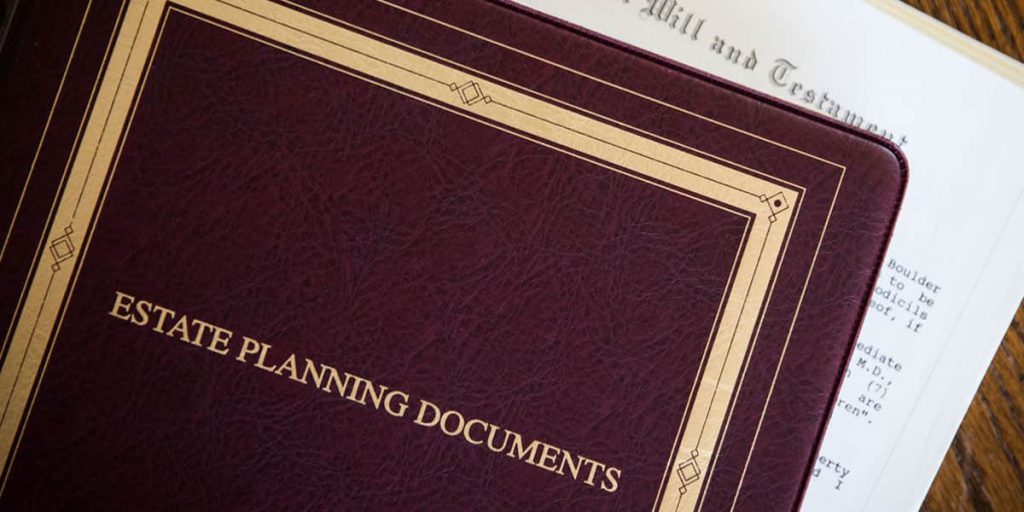
Having an estate plan is generally advantageous for individuals regardless of their financial status or age. While the specific necessity of an estate plan varies based on individual situations, here are some common.
Factors indicating the need for an estate plan:
Wealth Distribution:
If you have specific preferences regarding the distribution of your assets after your passing, an estate plan is crucial. Without a plan, state laws will determine how your assets are distributed, which may not align with your desires. An estate plan enables you to assign beneficiaries and ensure that your assets are distributed according to your instructions.
Dependent Children:
If you have minor children, an estate plan is essential to address their welfare and provide for their financial requirements in the event of your premature death. Through an estate plan, you can designate guardians to care for your children and establish trusts or other mechanisms to oversee their inheritance until they reach a certain age or milestone.
Planning for Incapacity:
Estate planning involves preparing for the possibility of incapacity due to illness, injury, or advanced age. Documents like powers of attorney and advance healthcare directives allow you to designate a trusted individual to make medical and financial decisions on your behalf if you become unable to do so.
Tax Planning:
If you possess a substantial estate, estate planning can assist in minimizing estate taxes and other potential tax obligations, ensuring that a larger portion of your assets goes to your intended beneficiaries.
Ownership of a Business:
If you are a business owner, estate planning becomes particularly crucial to ensure a seamless transfer of ownership and management. It enables you to plan for the continuity of your business, designate successors, and address potential tax consequences.
Privacy and Avoidance of Probate:
Estate planning can help maintain the privacy of your affairs and reduce or even eliminate the probate process. Proper planning can guarantee that your assets are transferred efficiently and privately to your beneficiaries without the need for court involvement.
Even if you believe your assets are modest or you are young, having an estate plan in place offers peace of mind and safeguards your interests and those of your loved ones. Seek advice from an estate planning attorney who can evaluate your specific circumstances and assist you in creating a plan that aligns with your needs and objectives.
Advantages of Estate Planning
Estate planning provides numerous advantages that can positively impact you and your family.
Here are some key benefits of estate planning:
Control and Transparency:
Estate planning empowers you to retain control over the distribution of your assets after your demise. You can specify who will inherit your property, money, and possessions, ensuring that your wishes are honored. This transparency can help prevent conflicts and disagreements among family members.
Asset Safeguarding:
Estate planning offers strategies to shield your assets from various risks, such as creditors, lawsuits, or the unstable financial situations of your beneficiaries. Through trusts, you can establish protections to preserve and manage your assets for the long term.
Reduction of Taxes and Expenses:
A well-crafted estate plan can help reduce estate taxes and other potential costs, ensuring that a greater portion of your assets goes to your chosen beneficiaries. Estate planning attorneys can provide strategies to minimize tax liabilities and administrative expenses related to asset transfer.
Avoidance of Probate:
Effective estate planning can help your loved ones avoid or minimize the probate process. Probate can be time-consuming, costly, and subject to public scrutiny. By utilizing tools like trusts, you can transfer assets outside of probate, facilitating a more efficient and private distribution to your beneficiaries.
Protection for Dependents:
Estate planning allows you to designate guardians for your minor children and dependents. By establishing trusts or other mechanisms, you can ensure that their financial needs are met and that the assets are managed on their behalf until they reach a certain age or milestone.
Healthcare and Incapacity Planning:
Estate planning encompasses the creation of advanced healthcare directives and powers of attorney, enabling you to appoint trusted individuals to make medical and financial decisions on your behalf if you become incapacitated. This ensures that your healthcare preferences are respected and that your financial affairs are handled according to your wishes.
Succession Planning for Businesses:
For business owners, estate planning is vital to ensure a smooth transition of ownership and management. It allows you to designate successors, establish plans for the continuation of the business, and provide for the financial stability of your business and your family.
Peace of Mind:
One of the most significant benefits of estate planning is the peace of mind it offers. Knowing that you have taken proactive steps to protect your assets, provide for your loved ones, and address potential uncertainties can provide a sense of security and reduce anxiety.
By consulting with a knowledgeable estate planning attorney, you can tailor a plan to your specific needs and goals, maximizing the benefits of estate planning for you and your family.
The post Do I need an Estate Plan? appeared first on locallawyerny.com.
Do I Need an Estate Plan?
Planning for the future is something everyone should consider, regardless of age or wealth. Creating an estate plan is a crucial step in ensuring your assets are protected and your wishes are carried out after you pass away. But do you really need an estate plan? Let’s explore the reasons why having an estate plan is essential for everyone.
What is an Estate Plan?
An estate plan is a set of legal documents that outline how you want your assets and affairs to be handled after your death or in the event you become incapacitated. It includes instructions for distributing your assets, appointing guardians for minor children, naming a healthcare proxy, and more.
Do You Need an Estate Plan?
Regardless of your age, income, or family situation, having an estate plan is important. Here are some reasons why you may need an estate plan:
- Ensure your assets are distributed according to your wishes
- Protect your loved ones, especially minor children and dependents
- Minimize estate taxes and avoid probate
- Appoint someone to make healthcare and financial decisions on your behalf if you become incapacitated
- Provide instructions for end-of-life care and funeral arrangements
Benefits of Having an Estate Plan
Creating an estate plan offers numerous benefits, including:
- Peace of mind knowing your affairs are in order
- Ensuring your loved ones are taken care of
- Minimizing potential conflicts among family members
- Protecting your assets from unnecessary taxes and fees
- Avoiding the lengthy and costly probate process
Practical Tips for Creating an Estate Plan
If you’ve decided that you need an estate plan, here are some practical tips to help you get started:
- Consult with an estate planning attorney to guide you through the process
- Inventory your assets and liabilities
- Name beneficiaries for your retirement accounts and life insurance policies
- Create a will, trust, and other necessary documents
- Update your estate plan regularly as your circumstances change
Case Study: The Importance of an Estate Plan
Tom and Sarah, a married couple with two young children, did not have an estate plan in place. When Tom unexpectedly passed away, Sarah was faced with making difficult decisions about their assets and children’s future. Without a plan in place, it took years to settle Tom’s estate and resolve legal issues, causing unnecessary stress and financial strain on the family.
Final Thoughts
Creating an estate plan is a vital step in protecting your assets, ensuring your wishes are carried out, and providing for your loved ones. Regardless of your age or financial situation, having an estate plan in place can bring peace of mind and security for you and your family.


